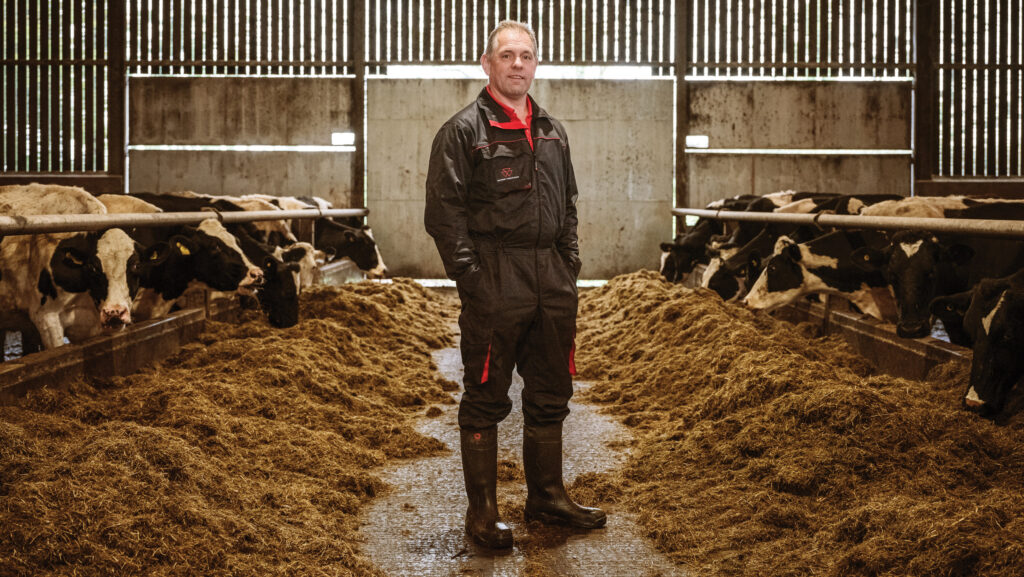Video: 90 and Counting – dairy farmer Edward Brown, Devon
 © MAG/Colin Miller
© MAG/Colin Miller From a very young age, farming is all I wanted to do. I’m not sure I ever thought I’d be milking cows, certainly not with robots – back then all I wanted to do was be on the tractor.
I’m the third generation here at Muffworthy Farm near Great Torrington.
We’ve got about 110 in the milking herd and 230 acres roughly, all grass. I actually grew up on a sheep farm.
Watch the full video interview below.
See also: Video: 90 and Counting – arable farmer Rebecca Hill, Dorset
At the time, my father and uncle were farming together with Granddad; my uncle was in charge of the cows and my dad was in charge of the sheep.
As the years went by, we managed to buy the farm at Muffworthy and set up a small milking herd; that’s when I started milking, at age 22.
We gradually built up the dairy herd and eventually we gave up the sheep altogether.
I started off milking in a six abreast parlour, then we put in a 10-20 auto ID herringbone parlour, and we’re now in the process of putting in two Lely robots.
We currently graze our cows six months of the year and we’re hoping to carry on grazing, and we will be looking to push yields more now with the robots.
Although every day is a challenge, you do get the odd days when it’s rewarding and that’s what makes it worthwhile.
Springtime, when you can get out and start cutting grass for silage, that’s always a nice feeling.
On succession…
My father is getting older and it would be nice for him to cut back a bit – whether he will or not I don’t know.
I don’t think there’s a member of staff that could replace him.
It’s like he says: he wants to be able to do what he wants, when he wants. And so he should really.
If ever I wanted to know anything, my father was there to tell me or show me.
To have somebody lead you, guide you, is very important and fortunately that’s what I’ve had – and still got – and, yes, it makes it a lot easier.
Robots have taken over what members of staff would have been doing.
But unfortunately there is a shortage of people wanting to come into this line of work. We need to move with the times.
On prices…
If we were getting decent prices for what we were producing, it wouldn’t be a problem.
It’s because the price is so low and buying anything is so expensive that it is difficult; that’s why we’ve relied on subsidies.
We were getting a good price for milk couple of years ago, but unfortunately it didn’t last.
And, in 2015, it hit rock bottom – that was probably the toughest year.
On public perception…
To the general public, if they don’t understand farming then the best thing they could do would be to visit farms to see what actually goes on.
Let them see the work that’s involved and where their good-quality food is coming from.
Schools could, and should, teach more about where our food comes from.
In recent years, there have been more and more open days on farms.
It is a good thing for the public to come and see what goes on.
When the government make their various decisions I don’t think they realise.
They’re like the public – they need to be out on farm to see how things are farmed.
1970s fact file
- 1970 Lord Henry Plumb was elected NFU president in January
- 1973 Prime minister Ted Heath took Britain into the European Economic Community (EEC)
- 1974 The fuel crisis led producers to consider measures such as reducing ploughing depth and using a combination of a chisel plough and rotary cultivator in place of a mouldboard plough and two passes with a disc harrow
- 1979 The Ministry of Agriculture encouraged farmers to plant more oilseed rape as improved consumption and crushing facilities widened the market for producers
Source: Farmers Weekly
